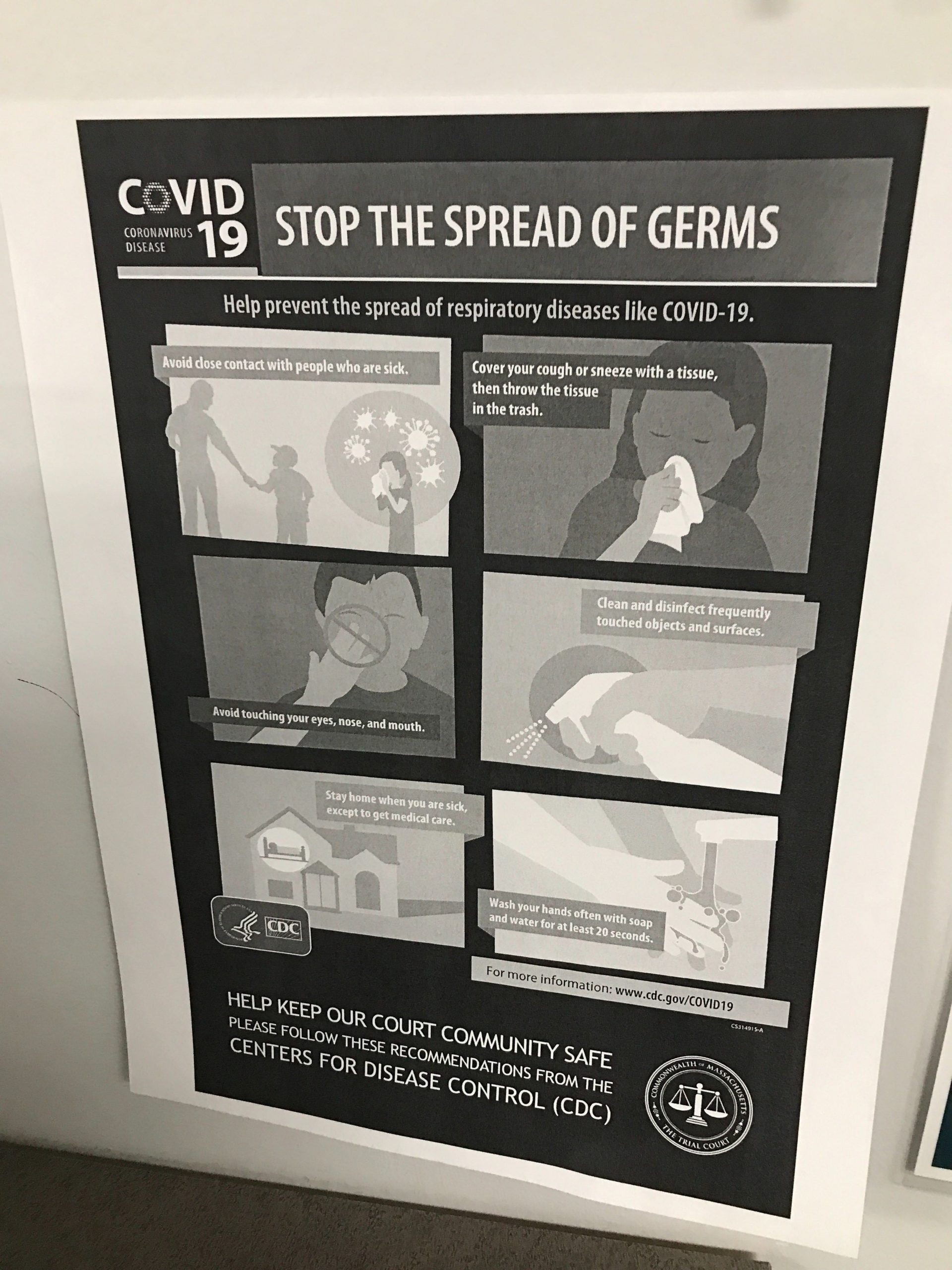Every day, people call and text me questions about criminal charges, arrests, citations, penalties, and Massachusetts state court procedures of every kind.
Here are some of the most common ones.
Yes, it will.
There are still clerk magistrate’s hearings in person in some courts, and some will give you the option of a remote hearing over Zoom. You can request a remote hearing in Boston, Dedham, and many other courts.
Daily changes and updates to short term court closures are updated here.
Many pre-trial conferences and other misdemeanor charge court dates in all Massachusetts District Courts are postponed or delayed and will be continued and reschedule to a date to be determined.
Jury trials still not happening in Massachusetts district courts.
The bottom line is that it’s still very chaotic. I’ve been to many different courts since they’ve reopened, and they all have different rules and systems in place. The only thing I can tell you is to be patient.
If you have a court date for a Clerk Magistrate’s Hearing, Arraignment, or Pre-trial conference and fear you might be sick, talk to your attorney about a postponement.
If you need to appear in court, but don’t have an attorney, such as an arraignment, and fear you might be sick, call the court and ask for recommendations.
If you are sick, you can request a medical disqualification for jury duty.
Almost certainly not! But I talk to people understandably terrified of this all the time.
If you aren’t charged with a serious felony or have prior convictions, there is almost no chance of actually spending time in jail.
Any misdemeanor driving offense, OUI, assault, or leaving the scene of an accident can be worked out, often without even a permanent criminal record.
In the statutes, all misdemeanor offenses have a possible maximum sentence of one year in jail, but again, it’s very rare.
Clients occasionally ask me if I am familiar with the court the case is in. I have handled cases and every district court in Massachusetts.
Some outcomes can vary depending on which judge we go in front of, and the case can take a different course depending on which District Attorney’s Office we are dealing with. So it is important to be prepared for that.
It’s also true that for hearing in front of a clerk magistrate, some court magistrates are more likely to issue a complaint and charge you with a crime than others. But most of the time our strategy is not affected.
As a criminal defense attorney for over 20 years, I can tell you that there is no one secret trick that works in front of one particular court or works with one particular DA.
My success is based on preparation, experience, and flexibility when negotiating.
In criminal cases, sometimes people get arrested and have to go to court on very short notice. That is normal and sometimes they have to scramble to find a lawyer in a day or two.
There isn’t much that can be done about that and that’s not really a problem.
If you haven’t been charged yet, but think you might be, then you may want to wait to make sure.
But if you are charged with a serious criminal offense or have a complicated case with witnesses, victims, discovery, etc., it is extremely advantageous to have a lawyer with as much time to prepare as possible.
The correct answer to when you should hire a criminal defense lawyer is probably as soon as you know you need one.
A clerk magistrate’s hearing is an evidentiary “show cause” hearing to determine whether you will be formally charged with a crime.
If you get a criminal citation, it means you will appear at such a hearing.
Clerk Magistrate’s Hearings are unique in that, even though the point is to establish if there is probable cause to charge you with a crime. The Clerk Magistrate is also empowered to dismiss the charge even if there is plenty of evidence for probable cause! My job as a lawyer is to convince him to do just that.
They are quirky and unique to Massachusetts criminal court practices.
I do lots of these hearings, and wrote a book about it.
Call me or text me for help!
Maybe. It depends on where and when it happened, and how they might be able to identify you.
Hitting a car in a parking lot or a car parked on the street and leaving is considered a hit and run. But for the police or the victim to find you, there would have to be a witness or a security camera that can clearly identify your car. Most of the time, that just doesn’t happen.
If you haven’t heard anything, and a fair amount of time has passed, you are probably not at risk of being caught.
But if the police call you to investigate, send you a letter asking you to come in, or knock on your door, then there is a good chance you will get a criminal citation.
Either way, if you have damage to your car, there are a number of things to consider about reporting what happened to your insurance company to get it repaired.
It is possible, yes, although it happens very rarely.
Recently, a man who was arrested requested charges against a police officer for allegedly stealing his phone during the course of his arrest.